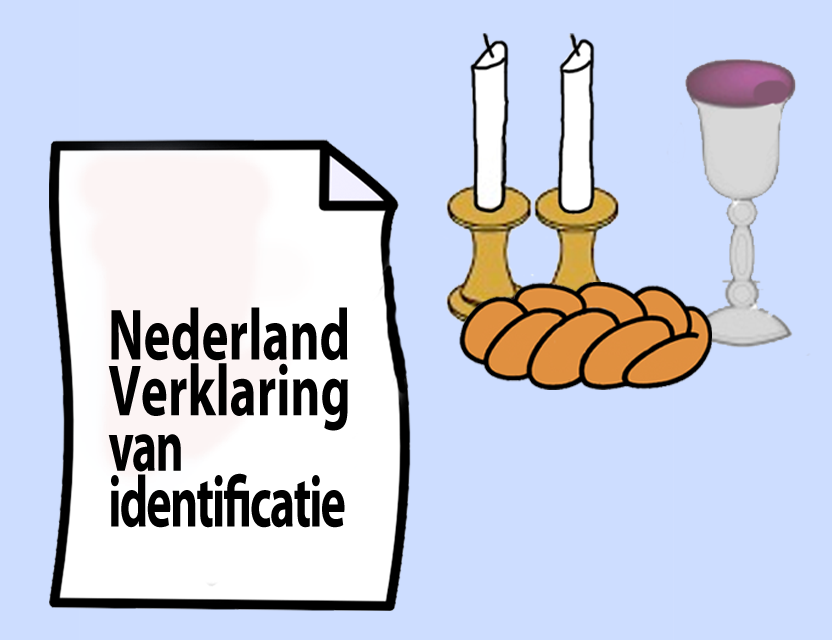 In the United States, the decree that “Congress shall make no law respecting an establishment of religion, or prohibiting the free exercise thereof” is an integral part of living in a free country. In fact, it is the first amendment to the Constitution, and the government tiptoes around the possibility of violating it, to the delight of lawyers and lawmakers nationwide. Jews have long enjoyed freedom of religion in the land of the free. Unfortunately, across the globe, another country has been moving toward limiting Jewish religious rights: the Netherlands.
In the United States, the decree that “Congress shall make no law respecting an establishment of religion, or prohibiting the free exercise thereof” is an integral part of living in a free country. In fact, it is the first amendment to the Constitution, and the government tiptoes around the possibility of violating it, to the delight of lawyers and lawmakers nationwide. Jews have long enjoyed freedom of religion in the land of the free. Unfortunately, across the globe, another country has been moving toward limiting Jewish religious rights: the Netherlands.
Jews first arrived in the Netherlands during the Roman conquest, but the community was small until the Jews of Spain and Portugal were expelled from their countries and the Inquisition began in 1492. The Holland provinces, especially the city of Amsterdam, boomed with the influx of refugees and crypto-Jews, since it was one of the few places that, ironically in retrospect, offered religious tolerance and safety. The mixed Sephardic-Ashkenazi community experienced little persecution until the Holocaust, when the Nazis invaded and deported nearly 13,000 Jews, including Anne Frank and her family, to concentration camps. Today, there are between 25,000 and 30,000 Jews living in the Netherlands.
In 2005, the Netherlands passed a law requiring all people aged fourteen and above to carry identification cards at all times, something that had not been in law since the Nazi regime. In 2011, in the town of Rijswijk, a Shabbat-observant Jewish man was fined €60 by police for not showing his card on Shabbat. Carrying anything (other than clothing being worn) outside of an eruv (private area enclosed to technical specifications) on Shabbat is prohibited according to the Torah, and the man argued for his religious rights. A judge ruled in his favor, but the Dutch Public Prosecutor’s Office appealed the verdict. In late Feb. 2013, The Hague Appeals Court upheld the fine, stating that the identification-card law does not have a religious exemption.
According to the U.S. Consulate General, the law was created “to increase safety and reduce crime,” although Ynetnews (ידיעות אחרונות) reported that the law was presented during “a wave of anti-immigrant and anti-Muslim sentiment” (the question of whether or not mandating hic-et-ubique ID cards would reduce crime or impede immigration still remains). The reasoning of The Hague Court of Appeals would seem to be that if it granted exemptions to religious Jews, it might then have to grant exemptions to any individual or group that filed a religious objection to the law. If enough people were to do so, the law could in essence be nullified.
However, unless a creative solution can be implemented, the Netherlands has now forced its Jews into the choiceless choice of whether to violate the law, violate religious law, or stay within the confines of their homes for twenty-five hours each week. Religious debate about what people should do have unpleasant precedent to letters written to Rabbinic leaders after the implementation of similar laws in Nazi Germany, requiring all Jews to carry identification cards stamped with a “J” when venturing out. The question of whether one should obey the law, and if so, how, was debated by the religious authorities of the time. Since the related religious laws are very complex, a decisive answer was, and would still be, very difficult to determine. It will most likely be decided by the Rabbi Binyomin Jacobs, Chief Rabbi of the Interprovinciaal Opperrabbinaat (Dutch Rabbinical Organization) or may be referred further to religious leaders in other countries such as Israel or the United States.
However, if the Netherlands values the rights of its citizens, it would do well to permit religious freedom and back down from its stance. While concerns may arise that potential threats to national security might attack the country on a Saturday and claim to be religious Jews in order to avoid showing identification, the possibility is irrational, since such threatening figures could most likely simply obtain false identification cards instead. While few would dub the United States a paragon of virtue or John Winthrop’s proverbial “city upon a hill,” the Netherlands would benefit from emulating the religious freedom championed by its fellow country. After all, it has a history of religious tolerance to live up to.

